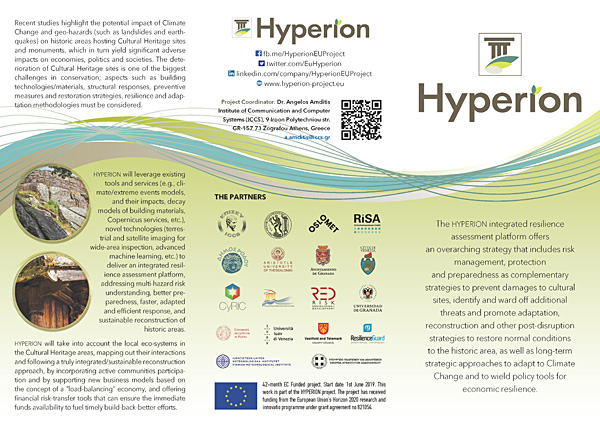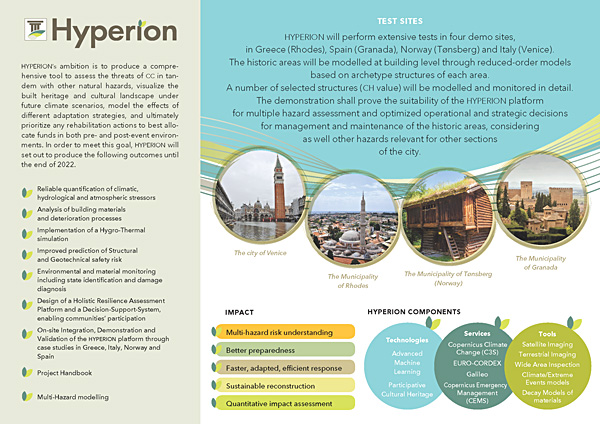Projects
LITEFLOATCON
Full title: Light-weight high performance concrete for modular floating structures
Project number: 101129716
Financing: Horizon Europe
Total budget: EUR 611 800
Project period: 1 Jan 2024 – 31 Dec 2027 (4 years)
LITEFLOATCON aims to build an international and intersectoral partnership for high-quality research development on innovative light-weight high performance concrete (LWHPC) and its application on multi-purpose modular floating structures for coastal space utilisation.
To achieve this ambition, LITEFLOATCON brings along a multi-disciplinary team comprising 33 researchers from nine academic partners with complementary expertise. The scientific objectives include: (1) developing innovative LWHPC suitable for coastal applications, (2) investigating the influence of various additives on the rheological and mechanical properties 3) assessing the durability properties 4) measuring the fatigue performance of LWHPC of various compositions developed (5) conceptual development of novel modular floating structural units with optimised shape and size, (6) developing an easy-fit inter-modular connector, (7) examining the global and local structural and hydrodynamic performances of the modular floating units, and (8) generating Life-Cycle Analysis and performance-based design guidelines and recommendations.
The outcomes of LITEFLOATCON include long-term and sustainable international partnerships that enhance the quality of research towards a modular floating LWHPC system with verified system design, material durability and structural safety, and an analysis and assessment framework for social and environmental impacts. These contribute to the development of next-generation coastal structures, to improved scientific knowledge of material and structural behaviour in harsh marine environments, to design standardisation of the offshore industry, and to Europe’s climate and sustainability goals.
People:
.- Jian Dai, Aase Reyes, Sarra Drissi.
Participating institutions:
.- Oslo Metropolitan University, Norway.
.- Aarhus University, Denmark.
.- Universidad de Castilla – La Mancha, Spain.
.- University College Cork, Ireland.
.- University of Plymouth, UK.
.- Monash University Malaysia Sdn. Bhd., Malaysia.
.- Phranakhon Rajabhat University, thailand.
.- Indian Institute of Technology – Madras, India.
Solar4Sea
Full title: Solar4Sea Technical Pilot
Project number: 345637
Financing: Research Council of Norway
Total budget: NOK 499 000
Project period: 10 Aug 2023 – 30 Jun 2024
Solar4Sea investigates a new and cost-effective floating solar concept designed for harsh offshore environments. As of today, most traditional floating solar solutions are not suitable for operation in offshore environments due to large waves and high wind. The proposed floating solar concept has the main features of semisubmersible lightweight modules, floats made of renewable materials, and a grid configuration with soft connections. All these features make the solar farm system reliable in operation, easy-to-install, and easy-to-maintain. Previously, numerical analysis and model tests were carried out for a downscaled small array under various wave conditions. The technical feasibility of the concept was preliminarily demonstrated, as shown by the excellent motion characteristics of the array in extreme waves. The objective of Solar4Sea is to solidify the previous research outcomes of the floating solar concept, and to identify pathways for next-stage development.
People:
.- Jian Dai.
Participating institutions:
.- Oslo Metropolitan University, Norway.
.- University of Agder, Norway.
ConStruct
Full title: Norway-Japan-China Consortium on Smart and Sustainable Road and Rail Infrastructure
Project number: UTF-2021/10090
Financing: HKdir and Konnekt
Total budget: NOK 4 197 298
Project period: 1 Jan 2023 – 31 Dec 2026 (4 years)
The Norway-Japan-China Consortium on Smart and Sustainable Road and Rail Infrastructure (ConStruct) project aims to develop a cross-continental alliance for high-quality education at the master’s level in transport infrastructure engineering. This project will bring along a team of experts to jointly address the global imperative societal demand for highly skilled professionals with a multidisciplinary profile and global vision via a research-based, student-oriented educational approach. The partner universities include Oslo Metropolitan University, Ehime University, and Southwest Jiaotong University. Each university is paired with a non-academic partner, including Konnekt, Kajima Corporation, and China Railway Eryuan Engineering Group. Such a collaboration will strengthen the quality and practicality of the educational outcomes, further foster in-depth collaborations between sectors for multidisciplinary educational excellence and innovations, and widen employment opportunities for students. ConStruct will enrich the learning experience of students by providing semester exchanges between universities and opportunities to work in the laboratories at partner institutions and write research thesis under joint supervision between partners. Staff mobility will also be supported to facilitate joint development of courses, seminars and guest lectures, and implementation of innovative pedagogical methods. Moreover, summer schools comprising lectures, symposium presentations and excursions will be organized. Expected project results include enriched study curriculum within transport infrastructure engineering, a series of seminars and summer schools, advanced training/mentoring of students with a global vision, joint project applications and publication of research results, and strengthened cooperation with non-academic partners.
People:
.- Jian Dai, Aase Reyes, Mahdi Kioumarsi, Chaoru Lu, Chuangxin Lyv.
Participating institutions:
.- Oslo Metropolitan University, Norway.
.- Ehime University, Japan.
.- Southwest Jiaotong University, China.
DeP2WIND
Full title: A data-driven framework towards sustainable reuse of decommissioned petroleum platforms as support structures for wind energy production
Project number: 101061320
Financing: Horizon 2021 (EU)
Total budget: € 210 911.04
Project period: 1st May 2023 – 30 April 2025 (2 years)
Seeking offshore green energy sources with the lowest possible cost and carbon footprint, while avoiding any additional oceanic waste, is currently a major challenge. Scientists have been warning about the increase in the number of decommissioned platforms and their potential negative impact on the environment. On the other hand, the transition from fossil to green energy has become a necessity if we are to reduce the consequences of climate change. This means that more petroleum platforms will be decommissioned in the near future. DeP2WIND is an innovative project that deals with these important problems by proposing a mapping framework for the reuse of decommissioned platforms as support structures for wind turbines.
People:
.- Dr. Mohamed El Amine Ben Seghier, Experienced Researcher, Oslo Metropolitan University, Norway.
.- Dr. Vagelis Plevris, Main Supervisor, Oslo Metropolitan University, Norway.
Participating institutions:
.- Oslo Metropolitan University, Norway.
DTADD
Full title: Digital Twin Anomaly Detection Decision-Making For Bridge Management
Project number: 101066739
Financing: Horizon 2020 (EU)
Total budget: € 226 751,04
Project period: 1st November 2022 – 31st October 2024 (2 years)
https://alejandoslomet.github.io/
Bridge infrastructure in Europe has great economic, social and cultural value. Nevertheless, many of the assets which are part of this network are in poor condition, which has been recently evidenced by the collapse of several bridges. The available human and economic resources are simply not enough to repair, maintain or replace all bridges part of the European network. Therefore, improvements on the current bridge management and operation system are urgently needed.
The DTADD fellowship has two specific objectives. The first objective is to build digital twin (DT) models of heritage/conventional bridges to assess and identify the highest performing anomaly detection algorithm (ADA) for damage and/or significant decay detection. Its second objective is to develop an ADA-informed open-source decision-making tool based on a RBBMA, to assess the need for bridge intervention while explicitly considering the bridge’s CH value.
The International Centre for the Study of the Preservation and Restoration of Cultural Property (ICCROM) has been added as new Associated Partner to the DTADD project. This will allow the ER, Dr. Alejandro Jiménez Rios, to conduct a prestigious ICCROM Fellowship where he will explore how the architecture, engineering, construction, management, operation, and conservation (AECMO&C) industry can adapt and be better prepared to embrace novel Industry 5.0 principles ultimately resulting in enhanced built cultural heritage conservation practices.
People:
.- Dr. Alejandro Jiménez Rios, Experienced Researcher, Oslo Metropolitan University, Norway.
.- Dr. Vagelis Plevris, Main Supervisor, Oslo Metropolitan University, Norway.
.- Dr. Maria Nogal, Secondment Supervisor, Delft, University of Technology, Netherlands.
Participating institutions:
.- Oslo Metropolitan University, Norway.
.- Delft University of Technology, Netherlands.
.- International Centre for the Study of the Preservation and Restoration of Cultural Property (ICCROM).
Flexible bulbous bow design

Financing: Faculty of Technology, Art and Design (TKD), OsloMet
Project period: January 2022 – January 2026 (4 years)
Traditionally, bulbs have been built with steel, which means they have constant dimensions and shape and can only work in optimal conditions for the designed-for speed. A conventionally shaped bow causes a wave crest, and a bulb forms a wave trough, cancelling or reducing both waves and thus, ship resistance. This cancellation mainly depends on the vessel speed and bulb’s parameters.
This PhD project proposes studying an alternative way to build the bulbous bow of a ship, providing it with the ability to change its shape and dimensions. This will improve the performance of a vessel related to resistance to motion and seakeeping, for the whole range of speed, and operating and environmental conditions.
Participating people at OsloMet: Samuel Ruiz-Capel, Aase Reyes, and Dimitris Kraniotis
Formability and fatigue in deep-drawn aluminum sheet structures for floating solar applications

Financing: Faculty of Technology, Art and Design (TKD), OsloMet
Project period: 1st February 2021 – 1st February 2025 (4 years)
The floating photovoltaic (FPV) technology developer Sunlit Sea AS delivers a system of prefabricated floating solar installations that is specifically designed to handle the chemical and mechanical hazards of the marine environment. The system comprises several interconnected FPV units that are kept in position by a mooring system. Each unit, approximately 2×2 m in size, consists of two deep-drawn aluminum sheet components that are joined together to form a floating structure.
The current PhD project endeavors to advance the understanding of formability and fatigue by addressing challenges related to the structure’s deep-drawing process, its influence on the operational stresses, and ultimately how complex stress histories induced by the in-shore wave loads can be accounted for in high-cycle fatigue models.
Participating people at OsloMet: Sigbjørn Tveit, Aase Reyes, and Emrah Erduran
HYPERION
Full title: Development of a Decision Support System for Improved Resilience & Sustainable Reconstruction of historic areas to cope with Climate Change & Extreme Events based on Novel Sensors and Modelling Tools
Project number: 821054
Financing: Horizon 2020 (EU)
Total budget: €5,997,728.75 EUR (€691,172.50 EUR allocated to OsloMet)
Project period: 1st June 2019 – 30th November 2022 (3.5 years)
HYPERION’s ambition is to produce a comprehensive tool to assess the threats of climate change in tandem with other natural hazards to cultural heritage sites.
Participating institutions: Institute of Communications and Computer Systems, Greece; Finnish Meteorological Institute, Finland; Resilience Guard Gmbh, Switzerland; Oslo Metropolitan University, Norway; National Technical University of Athens, Greece; Risa Sicherheits analysen Gmbh, Germany; University of Padova, Italy; University of Granada, Spain; Aristotle University of Thessaloniki, Greece; Cyprus Research And Innovation Center Ltd, Cyprus ; University of Venice, Italy; Vestfold County, Norway; City of Venice, Italy; Municipality of Rhodes, Greece; Ephorate of Antiquities of the Dodecanese, Greece; Ayuntamiento De Granada, Spain; Intercultural Euro-Mediterranean Center for UNESCO, Greece; RED SpA, Italy.
Participating people at OsloMet: Mahdi Kioumarsi, Dimitrios Kraniotis, Vagelis Plevris, Petros Choidis, Amirhosein Shabani
ReSEDiA
Full title: Research-based Structural Engineering in the Digital Age
Financing: Faculty of Technology, Art and Design (TKD), OsloMet
Total budget: 2 million NOK
Project period: 1st January 2019 – 31st December 2020 (2 years)
The objective of the ReSEDiA project is to strengthen the research basis of the Structural Engineering Research Group, establish its presence in the area both nationally and internationally, and to become leading in the field, while moving to the digital era taking full advantage of digitalization. This is important for the Bachelor, Master and PhD studies in Civil Engineering at OsloMet. The aim is for the group to be positioned in the national front in structural engineering while making impact also internationally. Furthermore, the cooperation with the Applied Artificial Intelligence group of OsloMet will promote interdisciplinarity and will open new interesting research challenges and paths.
Participating people at OsloMet: The Structural Engineering Research Group, The Applied Artificial Intelligence (AI) research group


